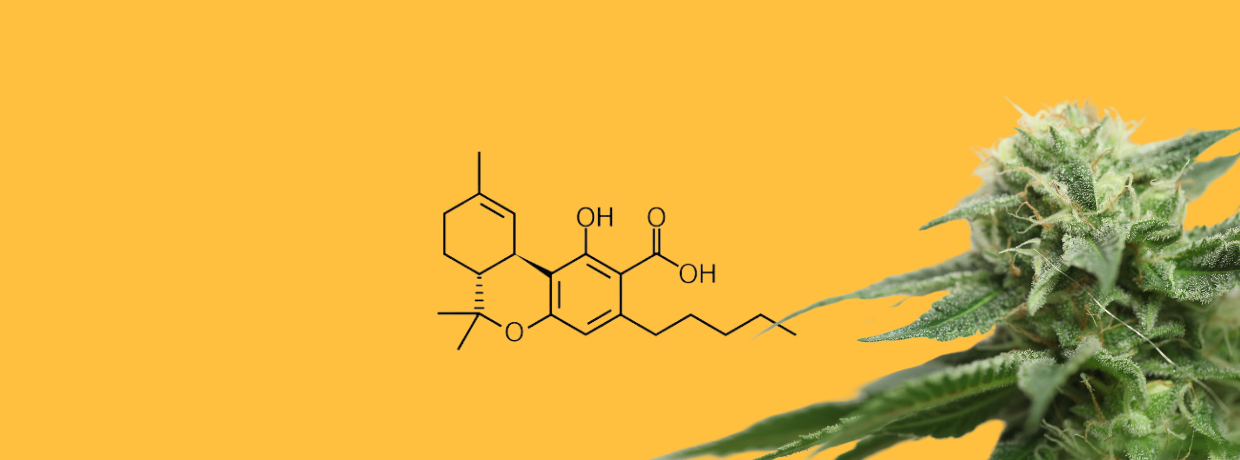 Free shipping on all orders over $60
Free shipping on all orders over $60 
As CBD is getting increasingly more popular for its therapeutic benefits, many people are concerned that CBD can show up on drug tests. It is known that if you smoke or consume marijuana it will show up on a drug test, but does CBD show up on a drug test? In this article, we will delve into the different types of CBD, whether they show up on drug tests and factors that may influence a positive drug test result.
As CBD is getting increasingly more popular for its therapeutic benefits, many people are concerned that CBD can show up on drug tests. It is known that if you smoke or consume marijuana it will show up on a drug test, but does CBD show up on a drug test? In this article, we will delve into the different types of CBD, whether they show up on drug tests and factors that may influence a positive drug test result.
CBD or cannabidiol is a natural cannabis compound found in cannabis plants. CBD is one of over a hundred cannabinoids found in cannabis plants and a non-psychoactive ingredient that may have potential health benefits, including reducing anxiety and relieving pain and other health problems.
Full-spectrum CBD oil has all the components from hemp plants, including trace amounts of THC, as well as a wide range of terpenes and flavonoids. The level of THC in any full-spectrum CBD oil must be below 0.3% to be legal according to the United States Federal Bill. However, even if the CBD products only have trace amounts of THC in each dose, it might accumulate in your body if you take more than a recommended dose, and overconsumption might lead to a positive result when doing drug tests.
Broad-spectrum CBD oil usually contains multiple cannabis plant extracts and is THC-free. Because THC is removed, it minimises the risk of a positive result in drug tests when using a broad-spectrum CBD oil. However, it is not a 100% guarantee that every broad-spectrum CBD oil is THC-free due to potential cross-contamination or mislabelling.
CBD isolate is the purest form of CBD, containing 99% pure, THC-free cannabidiol. This is the safest option for people who regularly have to do drug testing at work or want to avoid THC altogether. However, it is important to buy CBD isolate oil from well-known and competent brands to get the best quality products.
Drug tests are designed to measure THC metabolites by picking up on a specific enzyme THC-COOH. The enzyme metabolises THC and other THC-derived compounds and it remains in your body for several weeks after consumption, which may lead to a positive result when doing drug tests. Different drug tests may vary in their sensitivity and the substances they screen for. The most common drug test types are urine tests, but there are others like blood, saliva and hair drug tests that may be used.
CBD itself is generally not a target of standard drug tests, as these screenings typically focus on THC and its metabolites. Pure CBD is THC-free and will not show up during standard drug testing. However, if you’re using full-spectrum CBD oil, there may be traces of THC in the product and it may lead to a positive drug test. To ensure that you do not get a positive drug test, you should abstain from any THC products, including full-spectrum CBD oils for at least 30 days before drug testing.
Even though CBD is legal and you can use it, there are a couple of factors that can influence whether using CBD oil will show up on a drug test. To this day, the CBD market is not well regulated, so some products may have higher levels of THC than advertised. To make sure that doesn’t happen, only buy CBD oils from certified sellers. If the manufacturing facilities make THC products with CBD oil products there may be some contamination that may lead to a positive result.
As mentioned above, drug tests pick up on THC metabolites, and individual differences in metabolism may have an impact on how long THC remains in your system. That, with overconsumption of full spectrum CBD oil, may lead to a positive CBD drug test.
The United States Farm Bill in 2018 legalised cultivating cannabis and its derivatives, as long as hemp products have >0.3% THC. CBD products, like full-spectrum CBD oil or gummies usually meet this requirement, however, check your local laws before purchasing any full-spectrum CBD oils or anything else that may contain higher levels of THC.